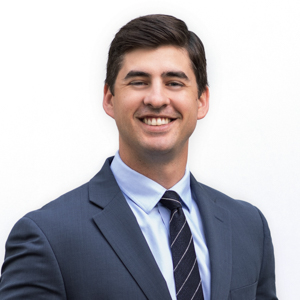Search Our Blog
Ponzi Scheme Bulletin
By Joseph M. Mellano, Senior Associate Attorney of Shustak Reynolds & Partners, P.C. posted on Thursday, January 20, 2022.

Joseph M. Mellano
Partner
Location: San Diego
Phone: (619) 696-9500 (Ext. 126)
Direct: (619) 546-9931
Email: [email protected]
In November 2021, Jeff Carpoff, a Northern California businessman, received a thirty-year prison sentence after pleading guilty to wire fraud and money laundering charges.[1] Eight months earlier, San Diego restaurateur and real estate magnate Gina Champion-Cain pleaded guilty to similar counts of fraud and received a fifteen-year sentence.[2] The charges against Carpoff and Champion-Cain stemmed from their operation of Ponzi schemes.
A Ponzi scheme is a financial ruse in which one uses money from new investors to pay returns to prior investors, while fraudulently representing that they come from honest business revenues. Carpoff sold non-existent solar power generators to investors, then leased those non-existent generators back, using money he received from subsequent purchasers to make the lease payments. Champion-Cain told investors she was using their money to fund small loans to restaurants, when, in reality, she was using those funds to pay older investors. All Ponzi schemes eventually reach critical mass and collapse due to a dearth of target investors. When they do, those who recently invested lose. The Carpoff and Champion-Cain schemes are no exception.
Most of the attention surrounding any particular Ponzi scheme focuses on the conduct of the scheme’s main orchestrator, but Ponzi schemes are never so simple that only that person faces legal liability—any person who worked with the perpetrator in any way or has any connection to the underlying transactions also could be answerable to a criminal or civil action. Spouses and business partners, for example, often have to defend themselves against allegations that they participated in the scheme. Businesses that provide services to the companies perpetrators use to carry out their schemes also frequently receive investigative scrutiny. Trustees, investment fund principals, registered investment advisers, and other traditional fiduciaries also face considerable legal exposure, most often for failing to notice red flags.
Examples of collateral liability abound in the cases of Carpoff and Champion-Cain. Carpoff pleaded guilty alongside his wife, who is awaiting sentencing in March 2022. Five of his business associates also have pleaded guilty. One has been sentenced to three years in prison and the other four likely will receive similar sentences. Champion-Cain, for her part, has seen several associates plead guilty and receive sentences. The charges against her also resulted in a $22.6 million settlement with Chicago Title, which allegedly failed to protect investor money from her. The cases against Carpoff and Champion-Cain have spawned countless other civil, criminal, and regulatory actions that will take years to resolve.
Shustak Reynolds & Partners, P.C. focuses its practice on securities and financial services law and complex business disputes.
We represent many broker-dealers, registered representatives, investment advisors, investors, and businesses.
Attorney Joseph M. Mellano can be reached in the firm’s San Diego office at (619) 696-9500.





